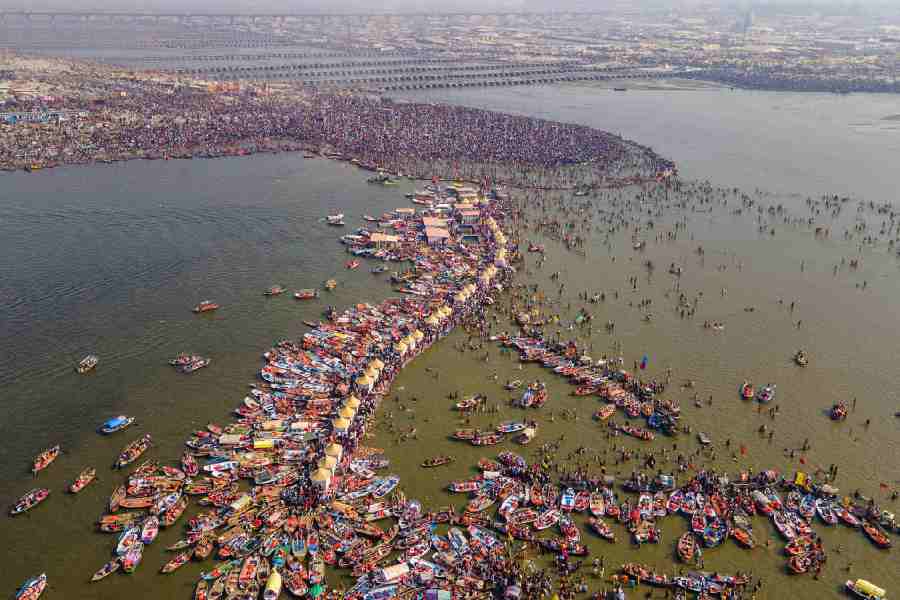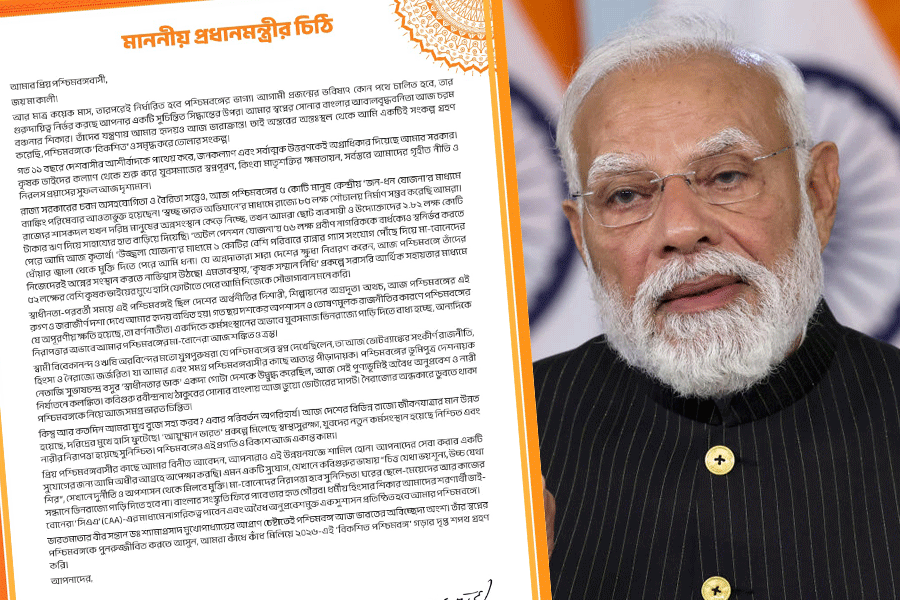The Ganga water at the Triveni Sangam in Prayagraj, where lakhs of people are taking a holy dip every day during the ongoing Maha Kumbh, is currently unsafe for bathing as it exceeds the prescribed limit for biological oxygen demand (BOD), a key parameter to determine water quality, according to government data.
BOD refers to the amount of oxygen required by aerobic microorganisms to break down organic material in a water body. A higher BOD level indicates more organic content in the water. River water is considered fit for bathing if the BOD level is less than 3 milligrams per litre.
Government data shows that the river water at Sangam is currently exceeding this limit. The BOD level at Sangam was 5.09 milligrams per litre at 5 am on February 16. It was recorded at 4.6 milligrams per litre at 5 pm on February 18 and 5.29 milligrams per litre at 8 am on February 19 (Wednesday).
According to Central Pollution Control Board (CPCB) data, the BOD level at Sangam was 3.94 milligrams per litre on January 13 when the Maha Kumbh started.
It improved to 2.28 milligrams per litre on Makar Sankranti (January 14) and further dropped to 1 milligram per litre on January 15.
However, it rose to 4.08 milligrams per litre on January 24 and was recorded at 3.26 milligrams per litre on Mauni Amavasya (January 29).
In a report submitted to the National Green Tribunal on February 3, the CPCB said the river water quality did not meet bathing standards during monitoring on January 12-13 at most locations in Prayagraj, Uttar Pradesh.
"However, after that, organic pollution (in terms of BOD) started to decrease due to freshwater intrusion at upstream locations. After January 13, 2025, river water quality (is) conforming (to) the bathing criteria w.r.t. BOD except (at) Lord Curzon bridge on river Ganga on January 19, 2025," the CPCB report read.
According to Uttar Pradesh government officials, 10,000 to 11,000 cusecs of water is being released into the Ganga to ensure it meets bathing standards.
The Maha Kumbh, which started on January 13, will conclude on February 26, Maha Shivaratri day. Over 54 crore people have taken a dip in the sacred waters of Triveni Sangam so far.
Mahakumbh Nagar is the world’s largest temporary city, accommodating 50 lakh to 1 crore devotees at any given time.
These pilgrims generate at least 16 million litres of faecal waste and 240 million litres of greywater daily from activities like cooking, washing, and bathing.
Uttar Pradesh Chief Secretary Manoj Kumar Singh told reporters on Sunday that the rise in footfall is due to the government's success in improving river water quality and sanitation since the 2019 Ardh Kumbh.
"Before 2019, there would be no toilets at Kumbh. Officials would earmark an area with a red flag, provide tents, and open defecation used to take place.
"For the first time in 2019, we built 1.14 lakh individual toilets with Sintex (plastic) tanks underneath to collect wastewater and excreta. Desludging would be done every two-three days and the faecal sludge would be taken to open oxidation ponds far away. This time, we have constructed 1.5 lakh individual toilets and two faecal sludge treatment plants," he said.
A 200 km-long temporary drainage network has been set up to connect treatment facilities, Singh added.
"Sanitation is a big hallmark (of Kumbh arrangements), and those who have been to Kumbh previously can distinctly see the difference," he said.
Except for the headline, this story has not been edited by The Telegraph Online staff and has been published from a syndicated feed.










